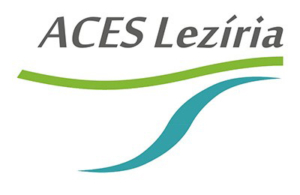
INFO-VAC Almeirim Elderly
27 April 2021 – Instituto Gulbenbenkian de Ciência, in partnership with Almeirim Municipality and the Group of Lezíria Health Centers, carried out a study in the elderly living in nursing homes, vaccinated with the Pfizer vaccine. The study measured antibodies against SARS-CoV- 2 before the vaccination, three to four weeks after the first dose and 3 weeks after the second dose.
The study was carried out on 146 elderly people, over the age of 70, living in nursing homes in Almeirim. The results reveal that only 25% develop antibodies after the first dose, values that reach 95% after the second dose. 5% of participants do not develop immunity after taking the vaccine. Promising results for the construction of group immunity, which reinforce the need to comply with the vaccination process and not to ease the respiratory protection and social distance measures, both between the first and the second dose of the vaccine, as well as after all doses.
If on one hand, the introduction of vaccines in the population requires close monitoring and surveillance, on the other, the analysis of the vaccine response against Covid-19 in elderly people has been little studied. Knowing this response, in different populations and in different age groups, is key to adjust vaccination policies or a possible revaccination. The study indicates that the second dose of the vaccine is essential to enhance the vaccine response through antibodies, since most people in this age group do not develop antibodies with just one dose of the vaccine, which may be insufficient to provide protection. Therefore, the time interval between the first and second doses can be a period of susceptibility for many people in this age group.
Compared to the data obtained in younger populations, this study shows that the response to the first dose is weaker in the older age groups and that there is a fraction of these people who do not develop antibodies after the second dose. The study revealed that 5% of the participants did not develop antibodies, which indicates that for this specific group, it is important to consider a personalized approach and keep respiratory protection measures and social distance until new ways of preventing the disease are found.
The results of this study were presented in a live broadcast session, that can be followed in the video below (in Portuguese).
INFO-VAC Elderly
17 August 2021 – The most recent data of the study show that of the 260 elderly over 70 who have been followed up since the first vaccination against SARS-CoV-2, 63% reveal the presence of detectable antibodies 6 months after vaccination. The trend towards a decrease in antibodies started to be noticed 3 months after the second dose, in about 15% of the participants. On the other hand, of the 160 staff members monitored in the five nursing homes, representing a younger population, 98.1% continue to present antibodies. The data obtained after 6 months, referring to the Pfizer/BioNTech vaccine, confirm that, similarly to what happens with other vaccines, the decrease in antibodies generated by vaccination is faster in the older population. The data refer to 260 elderly living in nursing homes in the municipality of Almeirim and also in nursing homes of the Armed Forces Social Services.
Instituto Gulbenkian de Ciência has been carrying out the INFO-VAC: SARS-CoV-2 vaccine effectiveness study in different age groups and of different vaccines available in the country, in partnership with hospitals and municipalities. The screening program covers health professionals, education professionals and people with specific diseases to whom different vaccines were administered in a total of 2,844 people.
The data collected will be shared with the Instituto Nacional de Saúde Dr. Ricardo Jorge, which will streamline, with the European Agencies (ECDC), the extended national monitoring which will allow to provide information for possible updates of the global policy recommendations.
Partners



